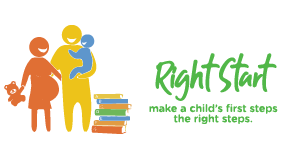Nutrition
Breastfeeding
- Breastfeeding is good for both mum and baby. The baby grows big and strong and develops a stronger immune system, and the mum has reduced risks of cancer.
- Breastfeeding should go on for as long as possible, ideally two years.
- For the first 6 months of a baby’s life, the baby should only be fed breastmilk. Giving water, tea or other foods and can make your baby sick, as their stomachs have not properly developed to digest anything other than milk.
- Early initiation (within 1 hour of birth) protects your baby against diseases and makes the baby cry less (the colostrum, or first milk helps the immune system).
- Exclusive breastfeeding for the first 6 months protects your baby from many illnesses, such as diarrhoea and respiratory infections
- Breastfeeding also protects your baby from ear infections and diseases later in life, such as obesity, diabetes and cancer.
- Breastfed babies are less fussy eaters because they get used to the taste of the food the mom eats.
- Breastfeeding helps your baby’s brain, and makes your baby healthy and smart.
- For mom, breastfeeding helps to reduce stress and helps you to return to your normal weight.
- Breastfeeding reduces disease risk for mom too, including diabetes, heart disease and cancer. <.li>
- The longer you breastfeed, the lower your chances of getting breast cancer and ovarian cancer.
- When you exclusively breastfeed your baby (give only breastmilk) at least 8-12 times a day during the first 6 months and have no menstruation, you can be protected from another pregnancy.
Young Child Feeding
- At 6 months of age, additional foods can be introduced to a baby’s diet, this can include porridge, mashed up fruits and vegetables. Make sure the baby’s porridge is not too watery (it shouldn’t fall of the spoon).
- Children should not be left to feed themselves as this puts them at risk of not getting enough food.
- Children should be fed a diverse mix of food to ensure they get all the right vitamins and minerals. This should include a mix of fruits and vegetables, starches (bread, porridge, rice), protein (fish, meat and beans) and some healthy fats (eggs, nuts, avocados)
- Foods that are high in sugars and fats should be limited (such as sweets, fizzy drinks, fried foods).
- Young children need to eat regularly for their bodies and brains to grow.
Click the link below to access pamphlets about how to Breastfeed your Baby, how often you should breastfeed and nutrition during pregnancy and breastfeeding
Nutrition During Pregnancy and BreastfeedingMore info on breastfeeding
Breastfeeding master class
Correct attachment
Tips on feeding your child when they are ill
Initiation of Breastfeeding
Tips on breastfeeding when you go back to work
Tips on what to feed infants and young children
Answers to common questions on feeding your baby
| When and how often should I feed my baby |
|---|
| Breastfeeding to a year and beyond |
| Positions for breastfeeding |
| Storing Breastmilk Safely |
| Increasing Your Milk Supply |
| What To Do About Breast Pain |
